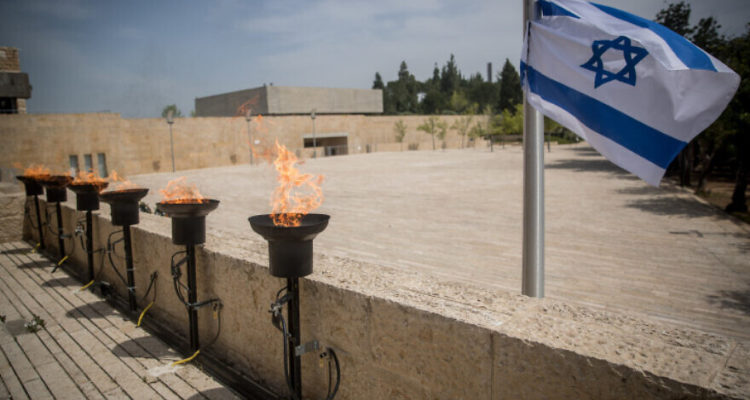Embracing the bogus comparison between Hitler’s “final solution” and other conflicts is as ill-fated as believing that a repeat performance is inevitable.
By Ruthie Blum
For one thing, most Israelis are too concerned with their personal safety in the face of shootings, stabbings, car-rammings and Molotov cocktails to worry about the purity of their souls and adherence to an unrealistic “rules of engagement” doctrine.
For another, the very real possibility of a nuclear Islamic Republic is both looming and concrete, with Iranian forces and proxies stationed along Israel’s borders.
Israelis are aware as well that Tehran is among those fanning the violent fervor of young Arabs desecrating their cherished Al-Aqsa mosque—on the Temple Mount in Jerusalem—by spreading the lie that Israeli forces are “storming” and “defiling” it.
Such pressing security threats, with no end in sight, help to explain the results of a poll released this week by the Pnima movement. According to the survey, conducted by Direct Polls, nearly half of the Israeli public (47%) fears another Holocaust against the Jews.
To be sure, this level of existential anxiety may be misplaced or a function of general dread on the part of a certain slice of society. Still, given the steep rise in global Jew-hatred—coupled with the spike in terrorism against Israelis and the P5+1 countries’ desperation to return to a deal that fills Iran’s coffers and guarantees its ayatollah-led regime an arsenal of atomic bombs—it’s not completely irrational.
It’s especially understandable when explicit calls for the extermination of the Jews have become so commonplace inside Israel and abroad.
Nevertheless, doomsday scenarios are not constructive. They certainly aren’t conducive to a “never again” mindset or outcome, both of which require internal resolve and military might.
The same applies to those Israelis who opt to learn the wrong lessons from the Holocaust. Embracing the bogus comparison between Hitler’s “final solution” and other conflicts is as ill-fated as believing that a repeat performance is inevitable. And even entertaining the idea that the Jewish state is on some kind of slippery slope to Nazism—when it’s forced to defend itself against the terrorists in its midst and beyond its shores—is immoral.
These are the messages that should have been going through our heads when we stood in silence for the two-minute Home Front Command sirens that sounded everywhere in the country. Reminding ourselves of their value is the least we can do to honor the dead, pay tribute to the survivors and mean it when we say “never again.”
Ruthie Blum is an Israel-based journalist and author of “To Hell in a Handbasket: Carter, Obama, and the ‘Arab Spring.’”





